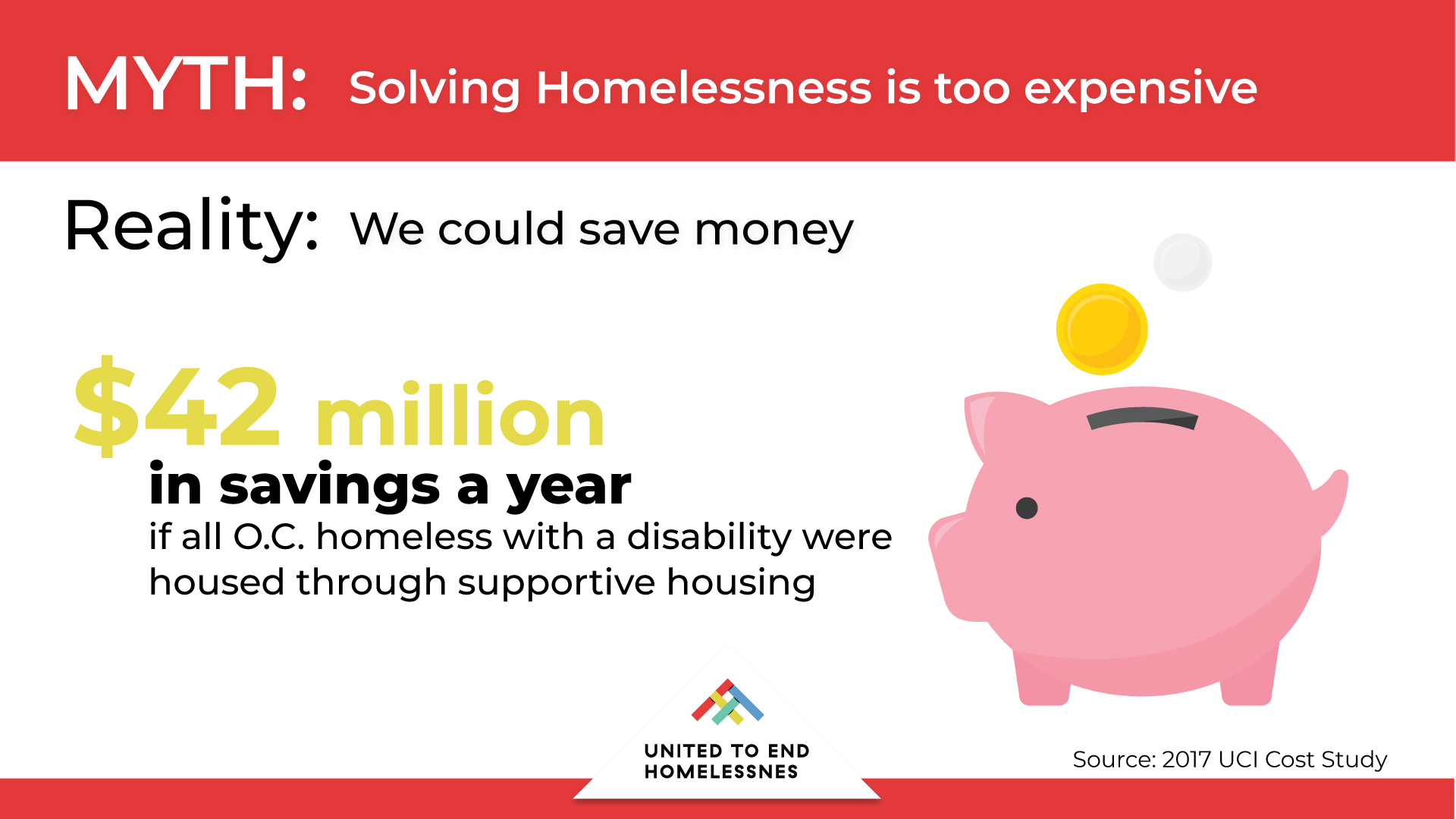Myth #6: Solving Homelessness Is Too Expensive
Author: David A. Snow, Distinguished Professor Emeritus, UCI Department of Sociology

In 2017, I co-authored, with my colleague Dr. Rachel Goldberg, a report called “Homelessness in Orange County: The Costs to Our Community”. This report looked at how much homelessness costs our community, and how the money we pay as tax payers is being used. We found that our community spent a significant amount of money to ineffectively address the issue of homelessness, and we could reduce this amount if, as a community, we invested more into housing-based solutions.
We looked at how much money Orange County spent on homelessness in one year, specifically 2014 to 2015. We calculated how much cities, the county, law enforcement, hospitals and service providers spent addressing homelessness, and found that it totaled $299 million dollars. We also found the healthcare cluster was the most costly, totaling $120,582,177, which went towards various services like ambulance rides, ER visits, and hospital stays. We were also able to estimate that the Orange County community could actually save $42 million dollars if we housed those who had been homeless for over a year and who had a diagnosed disabling condition. Equally significant, we found that the placement of those homeless individuals with disabling conditions into housing solutions led to corresponding changes in behavior. Specifically, we found that there was a 100 percent reduction in arrests when people were housed, a 43 percent reduction in ER visits, and a 78 percent reduction in ambulance rides. Each of these change resulted in reduced costs to our community.
When we looked at this data in terms of individuals, we once again saw the impact that housing-based solutions could have. We calculated that it costs approximately $100,000 for a homeless individual with a disabling condition to sleep on our streets for one year. However, if we were to end that person’s homelessness by housing them with wraparound services that cost would be reduced to about $51,000- almost half the cost of leaving them out on the streets.
If our tax dollars are already being spent to simply manage and maintain the status quo, perhaps we would be wiser to encourage our leaders to invest in proven solutions, like creating more permanent supportive housing, which will move us closer to our goal of ending homelessness in our community.
